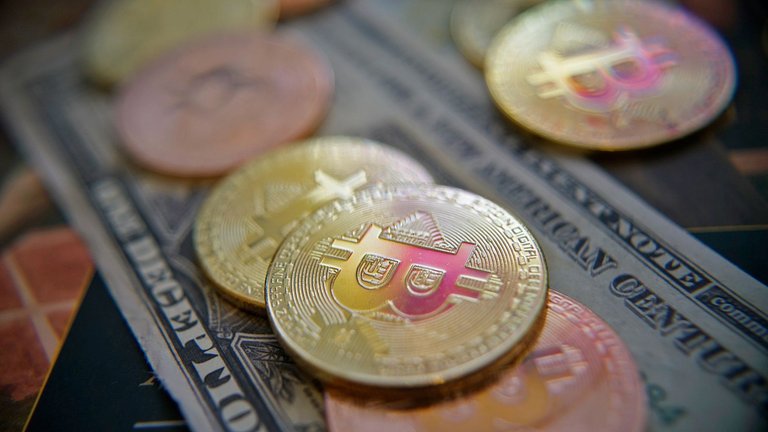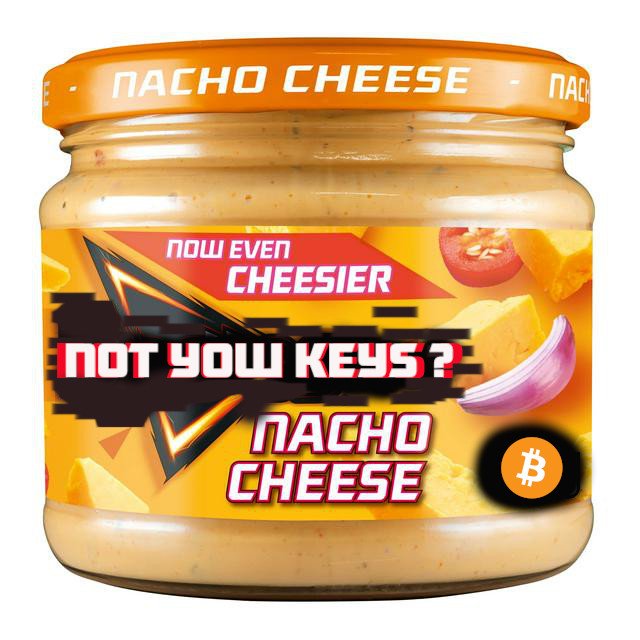 Photography from a few years ago
Photography from a few years ago
Introduction
“I’m back.” Feels like I’m echoing into the void, doesn’t it? Nearly a year since my last post, and trust me, it wasn’t because I ran out of things to say. Life has a funny way of pulling you underground when you least expect it. But after powering down my Hive account and recalibrating for the bull market, I’ve found myself facing some rather intriguing developments in the crypto and Layer 1 spaces. I’ll be sharing some insights here soon enough, so stay tuned.
Recently, I stumbled across an article that sent a familiar jolt down my spine: someone’s proposing a tax on Bitcoin. (paper) I couldn’t help but see the familiar playbook of coercive power. Imagine this—police brandishing weapons to uphold order; but at what point did the brutality outpace reason? What came first: the violence, or the need to defend against it? This cycle’s as ancient as it is flawed, and instead of borders and threats, what we need is borderless freedom.
The thought of giant corporations escaping taxes while decentralized assets face global regulation is like watching an episode of irony’s favorite sitcom. And if authority insists on forcing our hands, metaphorically pointing a gun and demanding our private keys, then the line is crossed. Freedom, folks, is worth defending—one digital coin at a time. So here’s your chance to get the family, the friends, and the whole network into crypto while we still can. When the dust settles, maybe we’ll sell the top and turn to stablecoin yields. Stay sharp; the world’s about to get interesting.
"The purpose of having a decentralised digital asset is for it to stay decentralised?"
The Era of the Permanent Primary Deficit and Bitcoin’s Counterweight
In classical economic terms, a “permanent primary deficit” describes a state where a government consistently spends more than its revenue, excluding interest payments on debt. This approach relies heavily on debt financing and central bank intervention to sustain economic growth, often through practices like quantitative easing (QE), which fundamentally depends on continuous money printing. This model, while effective at stimulating economies in the short term, has perpetuated a cycle of inflation, devalued purchasing power, and ultimately increased the gap between real wealth and monetary supply. It’s within this context that Bitcoin, stablecoins, and decentralized finance (DeFi) emerge as unique counterweights, fostering an economic model that operates independently of government intervention.
Bitcoin: The Unique Implementation of Permanent Primary Deficit
Bitcoin offers a built-in scarcity with its capped supply of 21 million coins, counteracting inflationary monetary policy by design. As opposed to fiat money, which can be inflated at will by governments, Bitcoin’s fixed supply introduces a radical concept: a currency that inherently resists manipulation and devaluation. Governments traditionally manage permanent primary deficits by relying on their central banks to create money as needed. Bitcoin fundamentally impedes this ability, positioning itself as a unique response to permanent deficit spending by existing outside traditional financial institutions and regulations.
Unlike fiat currencies, Bitcoin’s purchasing power is not directly impacted by central bank policy. As demand for Bitcoin increases and supply remains limited, its value is expected to appreciate over time. This deflationary model positions Bitcoin as a self-regulating, anti-inflationary asset that inherently resists central banking practices, challenging the basis of fractional reserve banking and unlimited money supply expansion.
Stablecoins and the Question of Marginal Utility
Stablecoins, pegged to fiat currencies but existing within the crypto ecosystem, offer the advantages of digital assets without the volatility typical of cryptocurrencies like Bitcoin. These privately issued forms of money represent an experiment in currency stability, detached from central bank policy but still anchored to real-world values. As stablecoins grow in popularity and usability, they pose significant questions about fractional reserve banking.
In traditional banking, fractional reserves allow banks to lend more than they actually hold, creating money supply out of debt and interest-bearing liabilities. However, stablecoins operate on a more transparent, often auditable basis, with reserves tied directly to assets. Their transparency challenges the opacity and risk inherent in fractional reserve banking, suggesting a more direct, utility-driven relationship between assets and currency value—a concept that Austrian economists would recognize as a movement toward catallactics, where market participants define value through exchange rather than monetary policy manipulation.
Marginal Utility and the Erosion of US Dollar Hegemony
The historical strength of the U.S. dollar as a global reserve currency stems from its perceived stability and liquidity. However, with rising government debt, fiscal deficits, and persistent inflation, the dollar’s purchasing power is increasingly under threat. Cryptocurrencies and decentralized finance represent a burgeoning paradigm shift where traditional fiat currency hegemony is gradually giving way to a multipolar currency ecosystem.
The concept of marginal utility in crypto markets is foundational to this transition, as it challenges the status quo by allowing people to determine value independently of central authorities. Bitcoin’s capped supply inherently boosts its marginal utility over time, particularly as more users enter the network, creating a positive feedback loop where scarcity drives demand, which in turn drives value. Cryptocurrencies thus represent a democratized approach to value, particularly when contrasted with fiat’s diminishing returns on utility through inflation.
Ethereum and Smart Contracts: Laissez-Faire Economics in Code
Ethereum’s smart contract functionality introduces automated, trustless agreements that echo the principles of laissez-faire economics. Unlike centralized economic systems where rules are enforced by regulators or policymakers, smart contracts execute agreements automatically, without intermediaries. This paradigm removes the political and bureaucratic barriers often associated with economic transactions, thereby supporting a freer market. Smart contracts enable everything from peer-to-peer lending to decentralized exchanges, allowing economic activity to unfold in a manner that mirrors laissez-faire ideals where individual actors determine outcomes rather than centralized institutions.
In a world where Bitcoin acts as a catalyst, stablecoins represent fiat on the blockchain, and Ethereum introduces programmable money, the future of finance leans toward decentralization. This evolution enables more individuals and entities to move away from government-controlled financial systems, weakening the traditional economic tools—such as inflationary policy and reserve banking—used to maintain control over wealth distribution and purchasing power.
Conclusion: Bitcoin as a Challenge to the Status Quo
Bitcoin and the broader crypto ecosystem represent not just technological innovation but a philosophical departure from central bank-dominated monetary systems. The “permanent primary deficit” maintained by fiat systems is inherently unsustainable, relying on continuous currency devaluation and inflation to sustain growth. In contrast, Bitcoin’s deflationary nature and limited supply, coupled with stablecoins and smart contracts, hint at a system of economic exchange that aligns with catallactics: a world where value is not mandated by governments but organically determined by market participants.
As trust in traditional currencies erodes and the value of the U.S. dollar declines, Bitcoin and decentralized finance offer an alternative system that upholds purchasing power and resists inflation. This shift signifies more than a move toward digital currency; it’s a reassertion of individual economic agency, challenging the fundamentals of fractional reserve banking, persistent inflation, and political control of money. The crypto ecosystem, led by Bitcoin, may indeed be the catalyst that unravels the paradigms of modern fiat currency, offering a glimpse of a truly laissez-faire financial future.


Why Bitcoin and Non-Custodial Wallets Are Your Ticket to Financial Freedom—And Why You Need to Take Action Now
Think about this: For years, our money has been controlled by banks, governments, and institutions that tell us what we can and can’t do with it. They print money when they want, devalue it without our say, and charge fees just for the “privilege” of using our own cash. But what if I told you there’s a way out—a way to keep your financial power in your own hands, away from the gatekeepers?
This isn’t just another financial trend. We’re witnessing a shift that’s reshaping the very fabric of money and value. Bitcoin, stablecoins, and non-custodial wallets are rewriting the rules, and it's time you got in on it.
The Future Is Here—and It's Decentralized
Here’s the truth: Governments and banks have been trying to control the value of money for as long as money has existed. They print more when they want, creating inflation, while your purchasing power dwindles. But with Bitcoin, that’s not an option. Bitcoin has a fixed supply of 21 million coins, making it immune to inflationary policies and central control. And every year, more people are using it to protect their money from the clutches of inflation and constant devaluation.
Enter Non-Custodial Wallets: Your Key to Financial Control
Here’s where things get interesting. A non-custodial wallet is your personal gateway to a world where you own your assets—completely. No more relying on banks or governments to hold or release your funds. With a non-custodial wallet, you and only you control your money. You have the keys, and no one else—not even the wallet provider—can touch your assets.
But wait. Why is this so revolutionary? Think about it: Instead of trusting banks or third parties that can freeze, charge fees, or even limit access to your own funds, you’re in charge. Your money is literally in your own hands, safe from the reach of centralized powers.
Progress Is Inevitable—And Responsibility is Key
Here's the thing—governments and banks are fighting tooth and nail to control this movement, but eventually, they’ll come to realize that they can’t stop it. The blockchain technology behind Bitcoin and other cryptocurrencies is too decentralized, too powerful, and it’s here to stay. Progress like this can’t be halted, only delayed. And with progress comes responsibility—yours.
If there’s one takeaway here, it’s this: your resources, your wealth, and your financial future are your responsibility. Just like natural resources, our financial assets are scarce and precious. So why leave their fate in the hands of others?
What Can You Do Right Now? Take Back Your Power
If you’re ready to break free from the cycle of inflation, to protect your wealth, and to secure your own financial future, here’s what you need to do:
Learn About Non-Custodial Wallets: Explore wallets like MetaMask, Trust Wallet, or Ledger. These tools give you direct ownership of your assets, without intermediaries.
Get Educated on Bitcoin and Stablecoins: Learn why these assets matter and how they help fight inflation and preserve value. Bitcoin’s fixed supply and stablecoins’ fiat pegging are your new financial allies.
Start Small but Start Today: You don’t need to dive in with everything. Start by moving a small amount into a non-custodial wallet. Experience the freedom and control that comes with owning your assets directly.
Don’t Wait for the Gatekeepers to Change—Start Your Journey Now
This is your chance to be part of a financial revolution that puts people, not institutions, in control. As banks and governments eventually accept that it’s futile to fight, you’ll already be lightyears ahead, financially secure and free. Take responsibility for your resources—because no one else can do it better than you.
Get started, take action, and let’s create a future where financial freedom isn’t a privilege—it’s a right.
So whats your take?
Do you think they can tax bitcoin globally?
Or do you think they will tax bitcoin?
Write your thoughts in the comments.

Vanishing Dong Chang 东厂aka Rane

"There is no I, no me. Mind and matter rise and fall, with no trace of me. Realize: all is mind. Look within—awaken." -@yangyangje

Feel free to tip Wallets for support:



Delegate to the Mind Force Gathering @mind.force and support more than artist on the hive blockchain.

Supporter of the Lotus Community

Join the Herbal Hive Community

Admin at the Hive Rocks Community

Welcome Back 🙏
@inuke So nice to get that comment.
How you been? I can see that you are still against the systems.
I’ve been doing well—spending more time in India, with Goa on the horizon in January. When it comes to 'the systems,' it’s less about fighting them and more about embracing alternatives. New digital assets valued globally—regardless of government approval—have the potential to be decentralized. And hey, as a tax-abiding citizen, I believe in supporting structures fairly, but I also think it’s fair that we have systems created for us, not just around us. If creators want to move on to something centralized, so be it—but for me, I’ll stick with choices that respect ownership and freedom.
Congratulations @yangyanje! You have completed the following achievement on the Hive blockchain And have been rewarded with New badge(s)
Your next target is to reach 67000 upvotes.
You can view your badges on your board and compare yourself to others in the Ranking
If you no longer want to receive notifications, reply to this comment with the word
STOPCheck out our last posts: